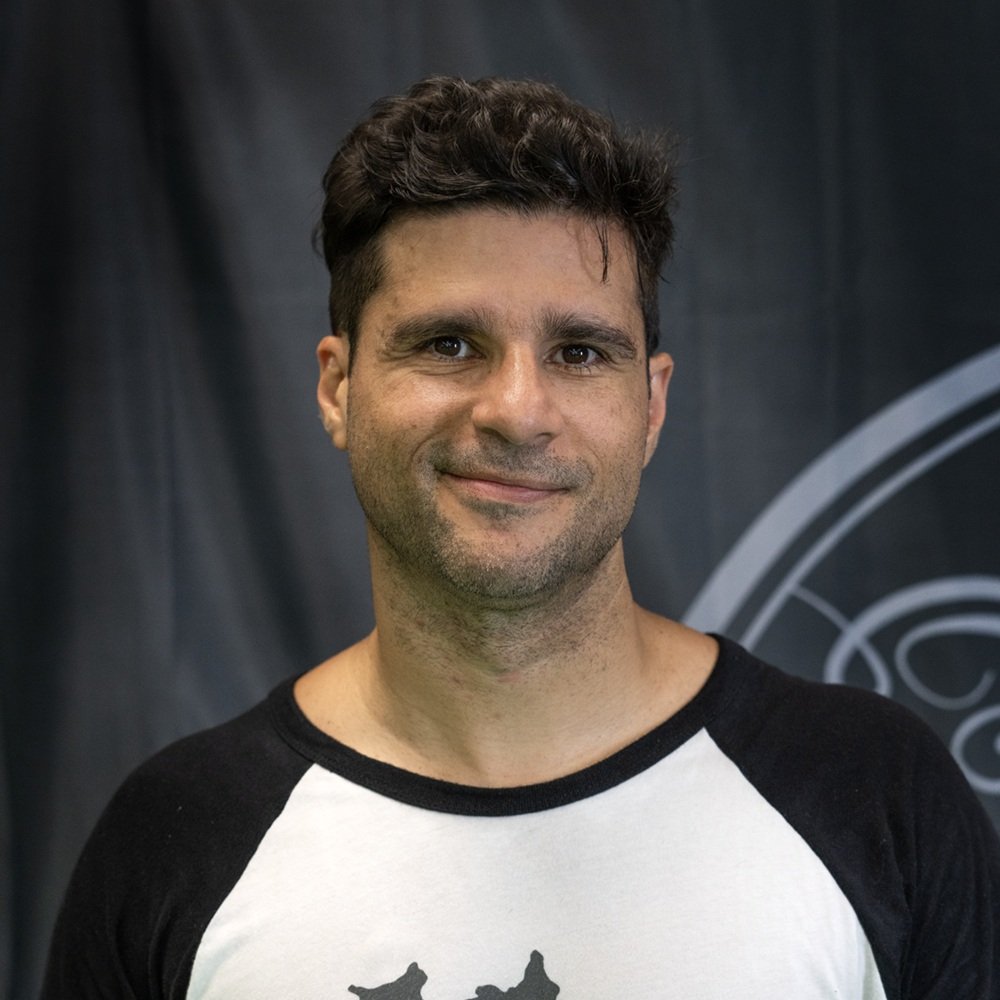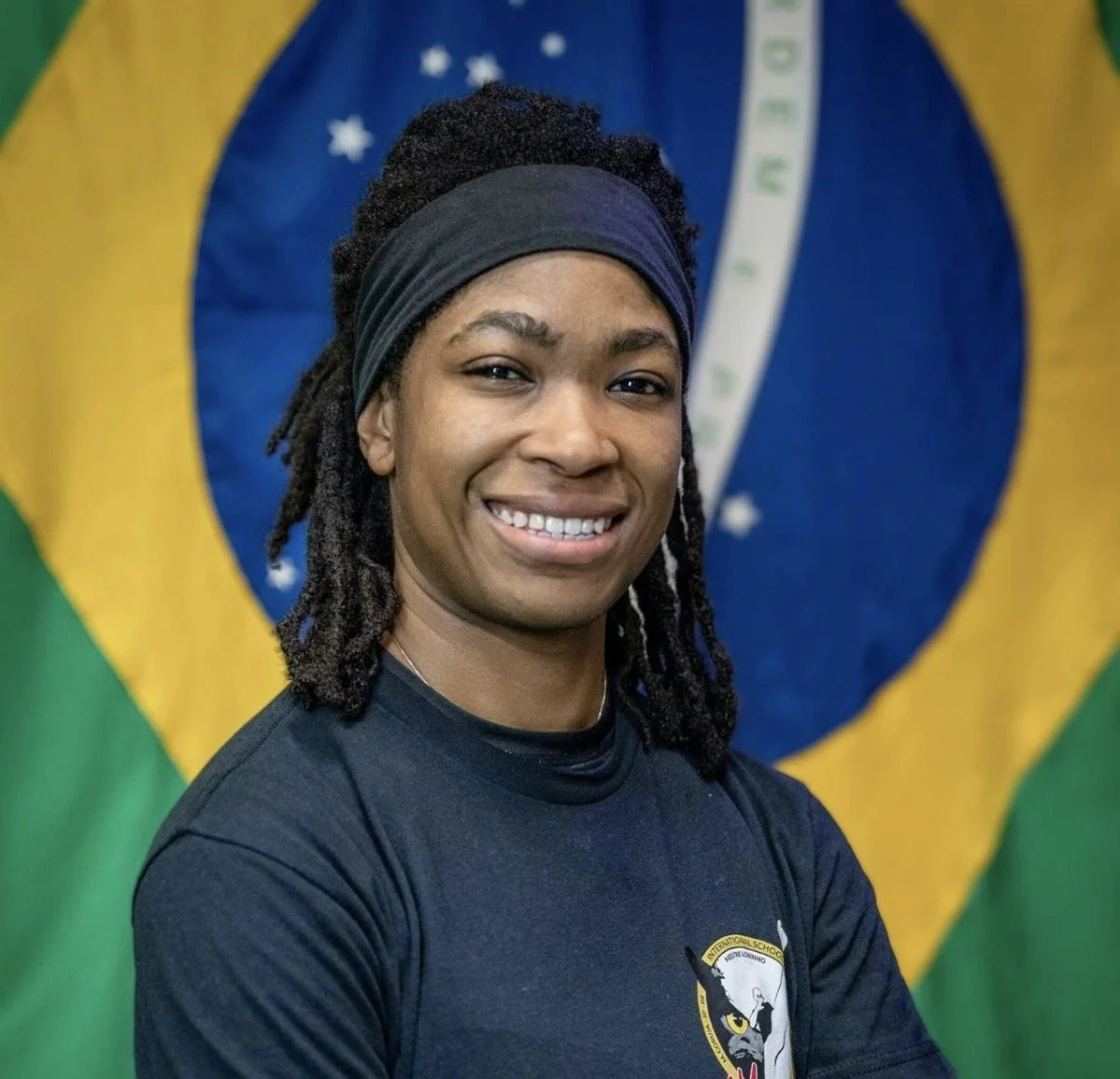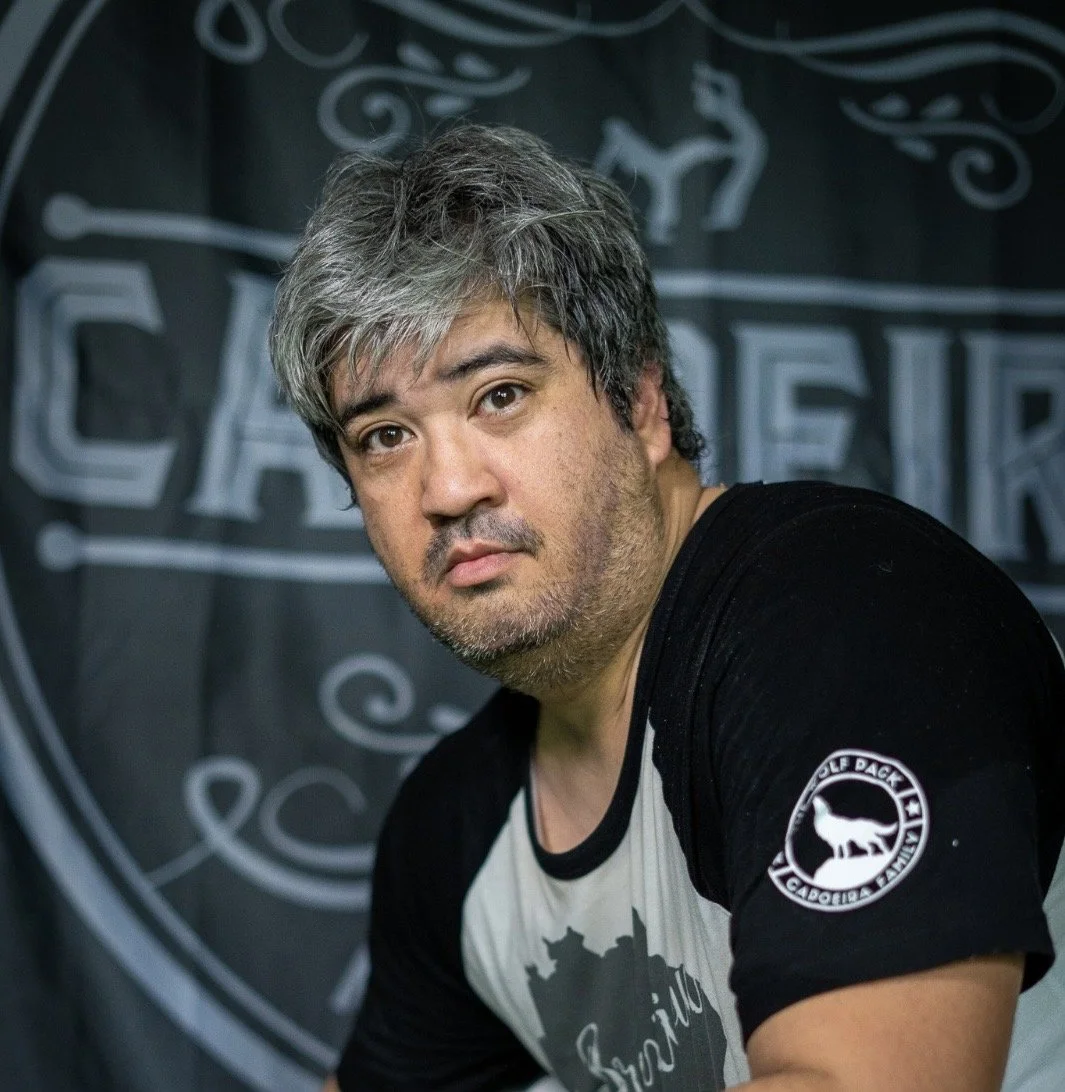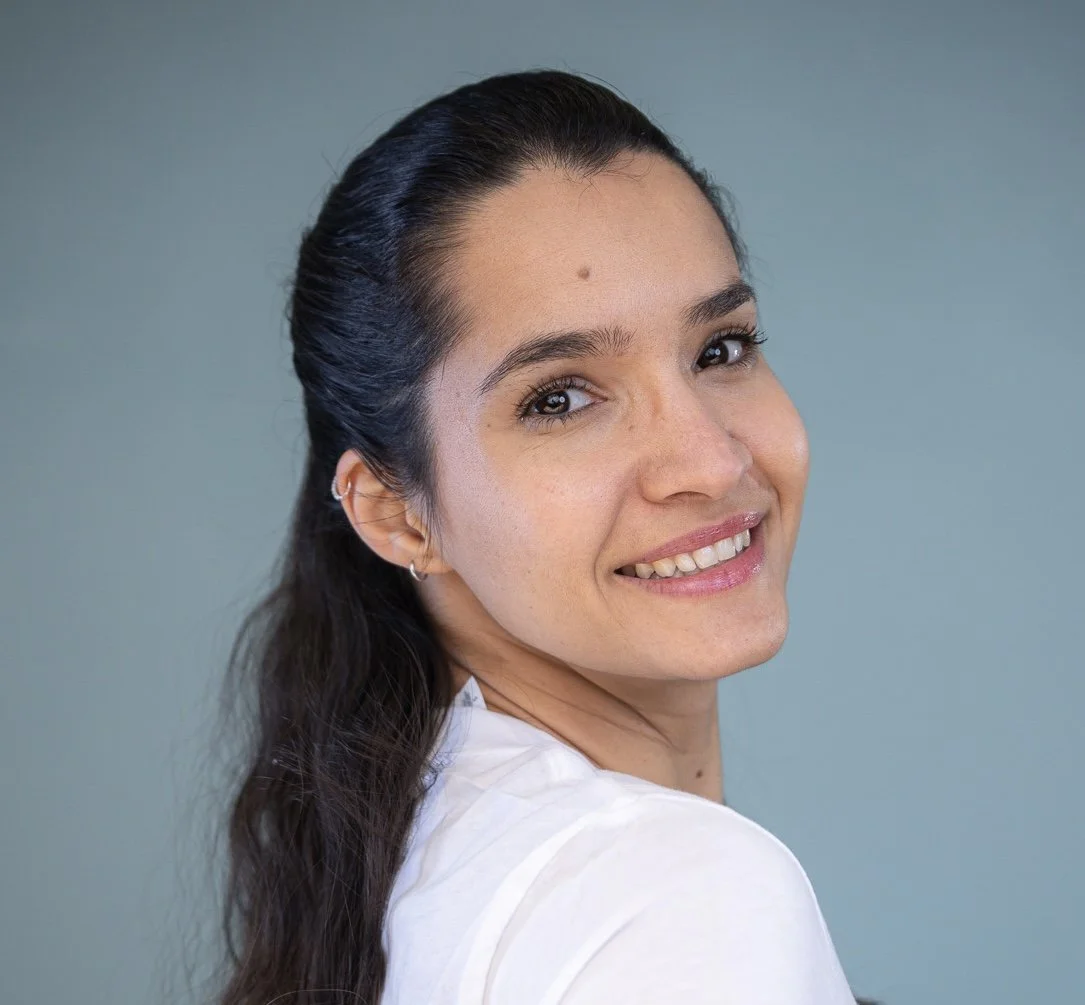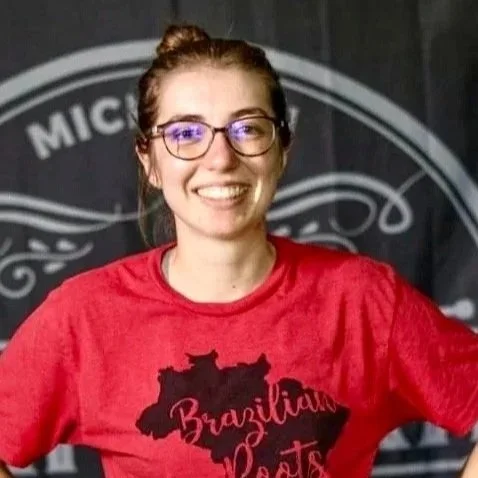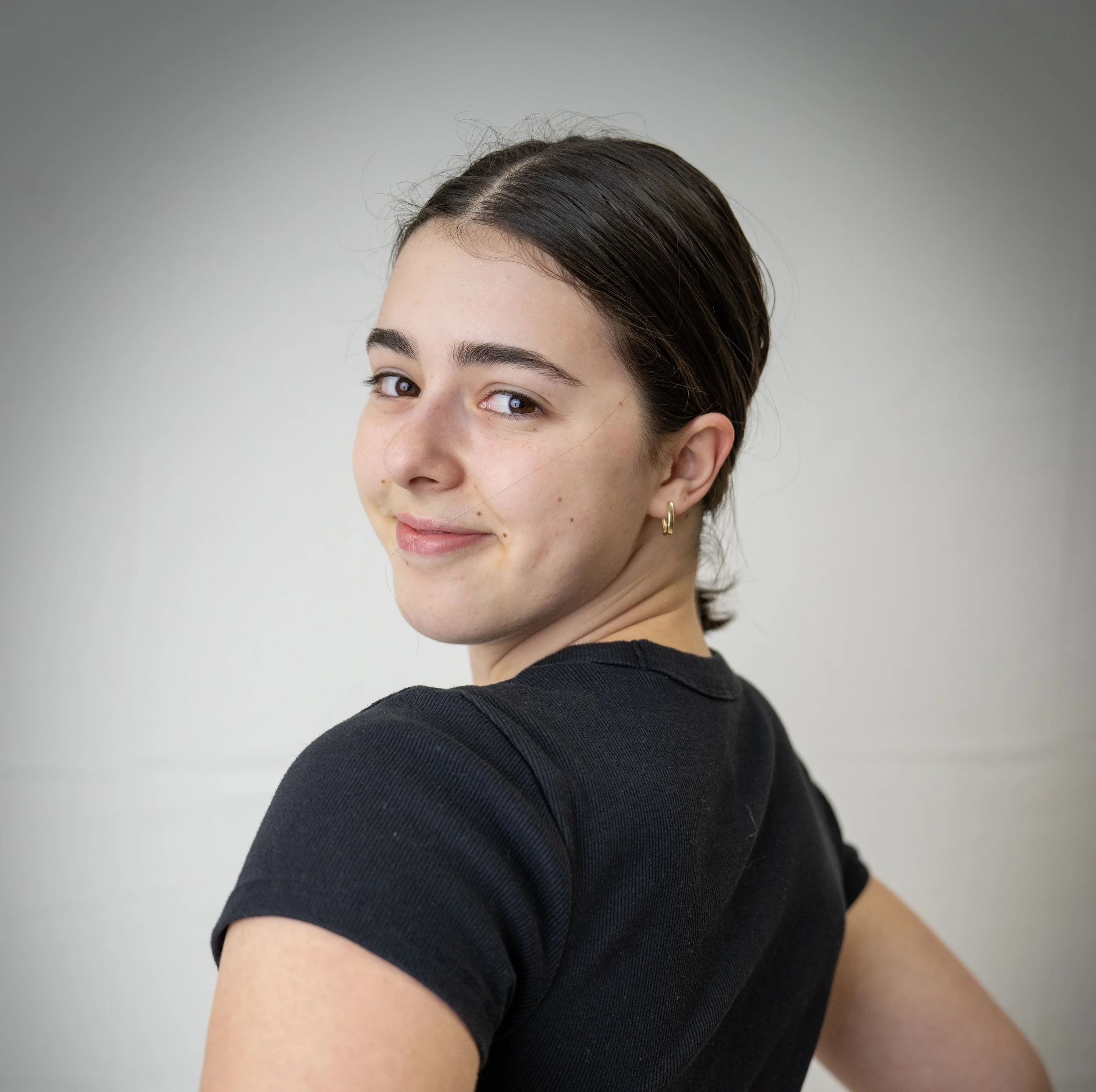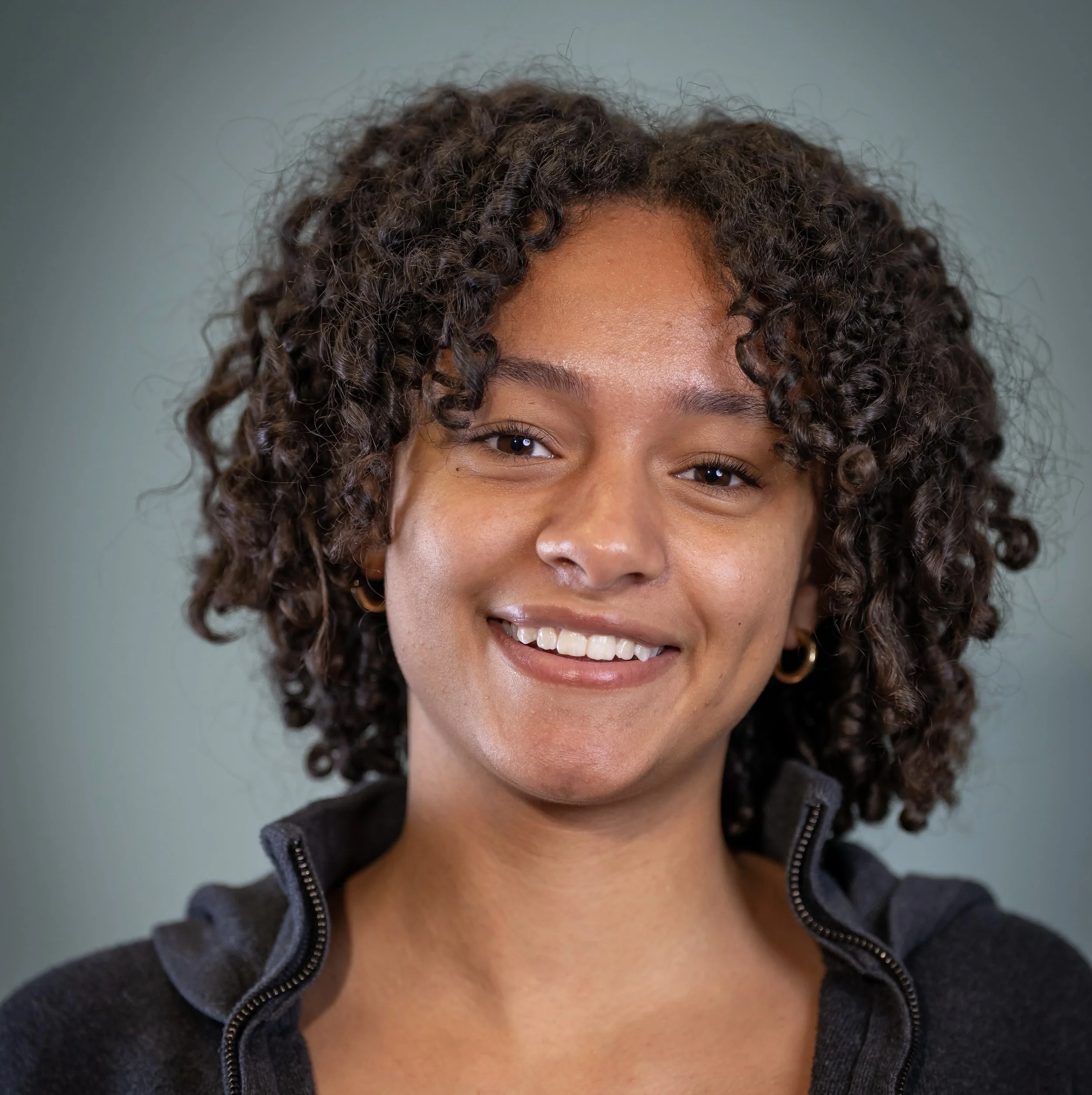Mestre Lobinho
Leader, and founder of the Brazilian Michigan Cultural Center
Fabio Cosmo da Cunha (Mestre Lobinho) began learning Capoeira in 1998 in São Paulo, Brazil. At 8 years old, Lobinho was introduced to Capoeira and his teacher, Mestre Coruja, through a social program led by a non-profit in Brazil to help underprivileged kids in the local community. Lobinho showed dedication and consistency, becoming in 2019 a Capoeira master (Mestre) recognized by his teacher and his community. For Lobinho, his life path in Capoeira is an example of the opportunities and unique benefits that this Afro-Brazilian art form can offer to people. For that reason, Lobinho has always believed in Capoeira as a career and philosophy of life, and has worked restlessly to offer the same to others.
At only 16 years old, Lobinho was already helping teach classes to kids and adults. At 18 years old, Lobinho started developing his own work in preschools and other institutions, making Capoeira his full-time job. He has taught classes for kids starting at age 2, teenagers, adults, elders, and also persons with disabilities, in an attempt to democratize access to Capoeira for people of different backgrounds. Today, with over twenty years of teaching experience and extensive knowledge, Lobinho is an ambassador of different Afro-Brazilian cultural expressions related to Capoeira in the Ann Arbor and Ypsilanti areas of Michigan, where he has taught for more than ten years. Moreover, Lobinho believes that Capoeira can be taught in different venues and spaces. Not only does he work with K-12 programs, but he also teaches workshops for families, kids, and adults in public spaces like libraries and community centers in the states of Michigan and Ohio.
Lobinho’s passion and commitment to Capoeira have also given him the opportunity throughout his career to travel to different cities in Brazil and the United States, as well as worldwide. In addition to these countries, he has taught workshops and participated in Capoeira events in South Korea, Mexico, Canada, Bolivia, and France.
Lobinho firmly believes in Capoeira as a professional career and as a powerful tool to be introduced and shared in education on all levels, including Higher Education. In 2023, Lobinho started working as a lecturer at the Department of Dance at the University of Michigan, where he has been sharing Capoeira with dance students, offering them new embodied possibilities that can be integrated into their professional practice. Mestre Lobinho has also been invited to teach at other higher education institutions like Ohio State University, and for special events like the American College Dance Association Regional Conference in 2023 and 2024, where dance students from different Higher education institutions gather every year.
Livio Berto da Silva
Professor
Livio Berto da Silva also known as Professor Livio, was born in Minas Gerais, Brazil in 1977 in Diamantina and raised in Belo Horizonte, starting to practice Capoeira initially with Graduado Caveira (Mestre Dunga’s Student) in his neighborhood in 1993 (16 years old) and after couple months, he was taken to start training with Mestre Dunga where he gained the larger part of his training.
In 2005 Livio got a job opportunity in Bahia State where is capoeira founders Mestre Pastinha, and Mestre Bimba are from. After 11 years, Livio felt the amazing capoeira environment and energy with old great masters that lived theirs lives with these founders and founder’s students, and many other great capoeristas.
In 2016, with his family, Livio moved to the USA for a new job. He choose to live in Ann Arbor, where he already knew that capoeira existed there. Livio met Mestre Lobinho, and appreciated the connection he has with capoeira, and it reminded him of the magic moments of the start of his journey at Dunga’s Center.
Today, Livio is very proud to be part of the Brazilian Michigan Cultural Center, and that the principles of Mestre Lobinho is linked to family, and a strong sense of community.
Chanise "Sossegada"Love
Instrutora
Chanise “Sossegada” Love brings over two decades of martial arts experience to her teaching. She began training in Tang Soo Do in 2001, earning her first-degree black belt at fourteen and later achieving a fourth-degree black belt, as well as a first-degree black belt in Taekwondo.
Her Capoeira journey began in 2015 at Grand Valley State University, where she was drawn to the art’s brilliant blend of movement, music, and dialogue. Since then, Capoeira training and community have been central to her daily life. She continued her training through graduate school and later joined the Brazilian Michigan Cultural Center under Mestre Lobinho, where she began teaching and deepening her role within the community. Promoted to the rank of Instrutora by Mestre Lobinho, Sossegada is committed to teaching, mentorship, and creating spaces where students can grow with strength, curiosity, and respect.
Julio Beltrán "Beriba"
Instrutor
Beriba (Julio Beltrán) was born and raised in Quito, Ecuador. There, he started learning Capoeira in 2008, while finishing his IR major in college. While he already had some previous experience with other martial arts and musical practices, his encounter with Capoeira was unique. The holistic nature of the art form captivated him, so his consistency in training and learning Capoeira and other Afro-Brazilian cultural expressions became part of his daily life. A few years later he started helping with the classes for adults and kids, and he was part of Capoeira and Brazilian percussion performances all over the country.
In 2020, Beriba came to the United States to complete his MA in Latin American Studies at Ohio University. While in Athens, OH, he started working on projects with Capoeira. In 2022 and 2023, He taught Capoeira and Maculelê at the American College Dance Association’s East Central Conference, at Ohio University. Beriba’s capstone project for his MA degree was an autobiographic and ethnography research, which explored notions of identity, resistance, and post-colonialism, in/through capoeira. He presented his research work around capoeira in conferences like the Ohio Latin Americanist Conference, and the Arts, Health, Wellness & Sustainable Development International Symposium at OU. He also put together a live performance of his research, presented at the Shirley Wimmer Dance Theater (School of Dance at Ohio University).
Recently, Beriba received the degree of Instructor (a teacher-level belt) from Mestre Lobinho, his Capoeira master, and the Capoeira group Capoeira Mangalot. Additionally, as the Outreach Coordinator for the Center for Latin American Studies at The Ohio State University, Beriba leads the “Capoeira in the Classroom” outreach project, through which he visits K-12 institutions across Columbus, Ohio, and in the future, other parts in the Midwest, and introduces capoeira to students from different backgrounds. He also teaches Capoeira classes at the Tuttle Park Community Center for kids and adults in Columbus, Ohio.
Jason Burgamy
"Tigre Branco"
Monitor
Jason Burgamy, known in the Capoeira world as TigreBranco—or simply Tigre—was born and raised in Canton, Michigan. He began his Capoeira journey around 2003–2004 at the age of 17–18 through a Tae Kwon Do studio in Canton under the tutelage of Zazi (Steven Stoops). Through Zazi’s mentorship, Tigre learned the music of Capoeira and developed an understanding of tradition, martial discipline, and cultural heritage, including exposure to Maculelê. When the training space closed around 2005 and Zazi stepped away from teaching, Tigre’s formal training paused.
Proudly identifying as half Filipino (mother) and half American (father), Tigre studied Filipino history at the Philippine American Cultural Center. Using what he learned he began volunteering in 2009, teaching Filipino history (Paaralang Pilipino) to children ages 6–12.
Tigre discovered a love of dance, art and history through his experiences: Capoeira, b-boying/house dancing, his international travel (Philippines and Europe), and because of the humanities teachers at Plymouth Canton Educational Park. In 2010 he graduated with a BA in Art History from Eastern Michigan.
In 2010, along with teaching Paaralang Pilipino, Tigre began shadow-mentoring a group Filipino Youth Initiative, preparing volunteer college students to lead workshops/classes that promote Filipino American cultural awareness. With Tigre’s mentorship the volunteer students learned traditional Filipino dances (Tinikling, Pandanggo sa Ilaw, Ifugao tribal dances) and then went on to facilitate discussions on identity, racism, and microaggressions affecting Filipino Americans. He attended these workshops to spark conversation and deepen dialogue across teens, young adults, adults, and seniors. He would continue this role until 2019.
In August of 2016, while attending salsa/bachata social at the Phoenix Center in downtown Ann Arbor, Tigre heard a familiar and unforgettable sound woven into salsa music. He had unexpectedly encountered Capoeira once again—hearing the berimbau played by Mestre Lobinho, who was preparing to teach at the same studio. After an 11-year absence, Tigre resumed his journey and has been with Lobinho ever since. He was formally welcomed into the Capoeira community at the Brazilian Roots Batizado 2016, receiving his first cord on October 1.
Tigre graduated to the rank of Monitor on May 10, 2024 continuing to deepen his practice and connection to culture through music, dance, language and jogo under Lobinho’s guidance.
Finding the same traditional values he grew up with, along with the same cultural values and sense of family, Tigre has found a home with the Brazilian Michigan Cultural Center.
Sonya Krasikov
"Diretoria"
Graduada
Sonya (Diretoria) Krasikov first discovered Capoeira while living in Israel and was immediately drawn to its rhythm, movement, and energy. As a mother, she values the positive impact Capoeira has on her kids—enhancing their physical and mental well-being, fostering friendships, and enriching their social lives.
Since joining Mestre Lobinho's classes in 2017, Capoeira has become an integral part of life for Diretoria and her family. At the Brazilian Michigan Cultural Center, she plays a key role in ensuring that classes, events, and summer camps run smoothly, creating an organized and welcoming environment where everyone can enjoy and benefit from Capoeira.
Adrielle Bellam
"India"
Graduada
Adrielle “India” Bellam, was born in São José dos Campos, Brazil, in 1994. Her deeper involvement with Capoeira started in 2020, after moving to Ann Arbor, Michigan. Looking to nourish her Brazilian background in a new country she accepted an invite from Lais “Aguia,” to try a class at the Brazilian Michigan Cultural Center, when both started to train under Mestre Lobinho.
Since then Capoeira has become a regular part of her routine. It supports her physical fitness and helps with focus and energy. As an executive at a global company, she finds that the discipline, adaptability, and quick decision-making from training carry over directly to her professional responsibilities. She aims to set an example for younger capoeiristas in the group and for early-career professionals she works with or mentors, showing how the same principles can apply in both the roda and a corporate setting.
In addition to training, Adrielle participates in developing activities and in the overall organization of the Brazilian Michigan Cultural Center. She has contributed to help organizing events, workshops, and other initiatives that help grow and strengthen the community, supporting the center’s mission to share Afro-Brazilian culture more widely in the Midwest
Laís Petri
"Águia"
Graduada
Laís had her first interaction with Capoeira during the early years of her undergraduate studies in biology at the Universidade Federal de São Carlos, campus Sorocaba, in Brazil. There, she practiced Capoeira Angola for about a year, an experience that marked her forever. Years later, after completing her master’s degree at the Instituto de Botânica de São Paulo, she moved to the United States to pursue her PhD at the University of Michigan. In Michigan, she brought her friend Adrielle (Índia, who later also became a graduada) and they connected with the Brazilian Michigan Cultural Center in 2020, just two weeks before the COVID-19 pandemic began. She continued to practice Capoeira via live online classes for nearly a year before the academy gradually returned to in-person classes, held outdoors and fully masked. Being alongside the Capoeira community helped her navigate these challenging years while continuing to grow both personally and professionally.
Laís quickly received her nickname, Águia (eagle, in English), after starting Capoeira in Michigan, due to her strong observational skills and her care for others. For her, Capoeira is fundamental in finding community, developing long-lasting friendships, and connecting with her Brazilian roots while living in a foreign country. Laís is now an Assistant Professor at Southern Illinois University in Carbondale and once again benefits from the flexibility offered by Mestre Lobinho, participating biweekly in live hybrid classes. She hopes to begin offering and practicing Capoeira with the Carbondale and Southern Illinois communities in the coming year.
Noa Orlyanchik
Graduada
Noa started Capoeira at the age of nine in 2017. Although it started as an after school activity just a couple of days a week, it became one of her greatest passions and a second home. As she grew older, she spent more time at Capoeira, training almost every day of the week. Together with others in the group, Noa became one of the first to get their teen belt. Since then, she has become a mentor to other students in the academy, eventually stepping up to teach the kids classes. This past year, Noa was promoted to the adult belt system and is honored to hold the title of Graduada. As a Graduada, she works to inspire the younger kids to train hard and is a strong female figure in the academy.
Allegra Souza-Graf
Graduada
Allegra has been immersed in capoeira since she was five years old, marking nearly a decade of dedication to the art. Raised with both Austrian and Brazilian heritage, she brings a unique international perspective to her practice. Having evolved from a young student into a dedicated leader, Allegra now takes great joy in teaching kids classes for alongside other students of Mestre Lobinho. She highly enjoys teaching the kids classes as it is a great way to connect with others!
KIDS CLASSES
Capoeira is great for kids! It is active and acrobatic; it provides a fun challenging way to use movement with the body. Children of all ages learn Capoeira very quickly because of their natural agility. The fun friendly atmosphere develops confidence and self esteem. It is also great for developing coordination. Capoeira movements involve the entire body; they develop strength and increase flexibility. The Capoeira music motivates and creates an exciting learning atmosphere. Children learn to sing in Portuguese and play traditional Capoeira instruments. Even though our Zoom classes, our students make incredible progress. Check out our video below from some of the outdoor classes we had this summer!
TEENS CLASSES
Capoeira, a Brazilian martial art, is an excellent activity for teens to participate in for several reasons. Here are some benefits that teens can get from doing capoeira:
1. Physical fitness: Capoeira is a high-energy activity that combines elements of dance, acrobatics, and martial arts. It provides a full-body workout that can improve strength, flexibility, and cardiovascular health.
2. Coordination: Capoeira involves quick movements and transitions between different positions, which can help teens develop better coordination and balance.
3. Socialization: Capoeira classes are typically done in groups, which can provide socialization opportunities for teens. They can make new friends, build teamwork skills, and develop a sense of community.
4. Self-confidence: Capoeira requires a lot of physical and mental discipline, which can help teens build self-confidence and self-esteem. They can learn to trust their bodies and abilities, which can translate into other areas of their lives.
5. Cultural awareness: Capoeira has deep roots in Brazilian culture and history. By participating in capoeira, teens can learn about another culture and gain a greater appreciation for diversity.
Overall, capoeira can be an excellent activity for teens, providing physical, mental, and social benefits that can last a lifetime.
ADULT CLASSES
Capoeira is a great way to stay active and creative at home. It will give your body physical strength, flexibility and empower you to be creative. We have heard many people say that Capoeira is one of the best things that happened in their life. Capoeira provides cardiovascular strength, and flexibility training, all of which are essential for overall health. When training capoeira you will use muscle groups that you may never have trained before so after training for the first time you can expect to be sore.
Capoeira can also provide the ever so important role of community in one’s life. We train and learn together. Even through Zoom, it’s easy to feel connected to the other students.



